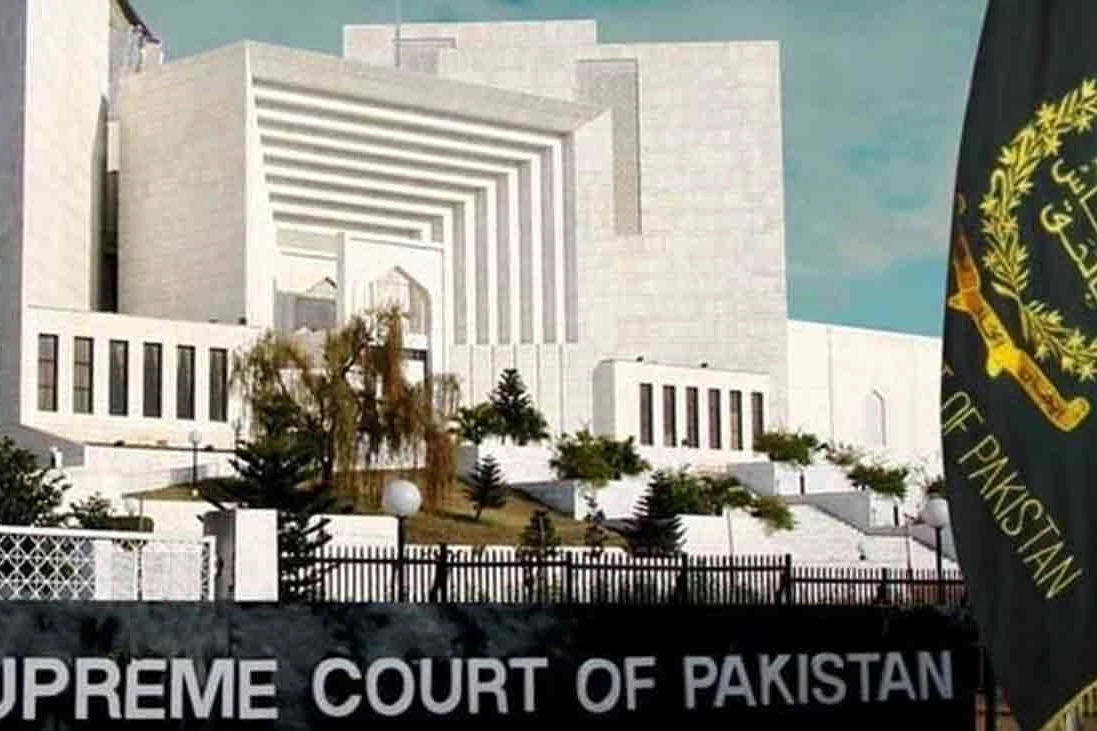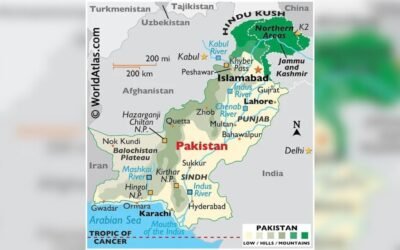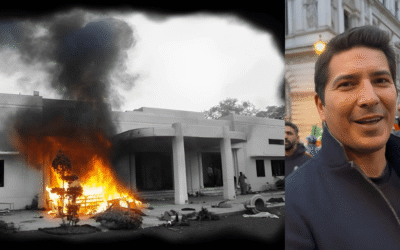Pakistan’s justice system, a pillar of its democratic framework, has long been a subject of intense public debate. At the heart of this discussion is the concept of “judicial activism” – the judiciary’s proactive role in addressing public interest issues or ensuring the enforcement of fundamental rights. However, a fine line exists between this activism and “judicial overreach,” where courts may be perceived as encroaching on the executive or legislative domains. Recent verdicts by Pakistan’s superior courts have reignited this debate, prompting legal experts to weigh in on the true state of justice in the country.
Defining Judicial Activism and Overreach
Understanding the distinction between judicial activism and overreach is crucial:
- Judicial Activism: This refers to the judiciary’s willingness to use its powers (especially judicial review and suo motu jurisdiction under Article 184(3) of the Constitution) to address social, economic, and political issues, particularly when the executive or legislature fails to act. It is often seen as a guardian of fundamental rights and a check on government authority. For example, intervening to secure clean water or address human rights violations is often viewed as activism.
- Judicial Overreach: This occurs when the judiciary is perceived to exceed its constitutional limits, interfering in matters that are purely the responsibility of the executive or legislative branches. Critics argue it transforms the judicial role of interpreting law into making law or policy, thereby encroaching on the separation of powers. Such actions are described as “transgressive” and “undesirable in a constitutional democracy”.
The Constitution of Pakistan, while establishing a separation of powers, does not explicitly define strict boundaries, allowing the judiciary to interpret its role broadly. This has led to ongoing tension.
The Historical Context in Pakistan
Judicial activism has a long and complex history in Pakistan. Early judicial decisions sometimes validated military takeovers under the “doctrine of necessity”. However, a new phase of activism emerged, particularly after 2007, with the era of Chief Justice Iftikhar Chaudhry.
- Post-2007 Era: The judiciary became exceptionally proactive, taking on a wide range of public interest cases, from human rights to governance issues such as kite flying bans and road maintenance. This activism gained significant public popularity, as the judiciary was seen as a “savior” against perceived government failures.
- Controversial Interventions: This era also saw high-profile judicial interventions in political matters, including the disqualification of a sitting Prime Minister (Nawaz Sharif in the Panama Papers case). Such decisions created deep divisions in the political class and public.
- Economic Impacts: Some experts argue that post-2007 judicial activism had significant adverse impacts on the economy and finance, sometimes resulting in huge penalties imposed by international bodies for violating foreign investment contracts.
Recent Verdicts Sparking Debate
In recent years, several high-profile verdicts by the Supreme Court of Pakistan have reignited the “activism vs. overreach” debate:
- Article 184(3) Use: The Supreme Court’s use of its original jurisdiction under Article 184(3), which permits it to address matters of “public importance” related to fundamental rights, has been a central point of contention. Critics argue its “excessive use” allows the judiciary to dictate policy to the executive.
- Controversial Appointments and Cases: Debates intensified over judicial appointments and rulings seen by some as politically motivated. For instance, concerns were raised about recent constitutional changes affecting judicial appointments, which critics argued would give the government more influence over the nation’s top court, threatening its independence. These reforms, passed in November 2024, reduce judges’ share in appointments and allow direct ministerial involvement in bench composition.
- Allegations of Pressure: Six senior judges recently publicly alleged intimidation and pressure from Pakistan’s political establishment to avoid delivering favorable rulings in certain high-profile cases, citing interference from the country’s premier intelligence agency. This incident gravely damaged public trust and fueled concerns about judicial independence.
- In July 2025, the Islamabad Sessions Court suspended a magistrate’s order to block more than two dozen YouTube channels, including those of critics of the government, citing a lack of legal basis and due process. Justice Imaan Mazari emphasized that courts must stay within their jurisdiction.
Legal Experts Weigh In
Legal experts and constitutionalists hold diverse views on these developments:
- Advocates of Activism: Some legal scholars argue that judicial activism is necessary in Pakistan. They believe it acts as a last resort when the executive and legislature fail to protect citizens’ fundamental rights or address pressing public issues. They see it as a vital check on unbridled executive power and a means to ensure justice where other state organs fall short.
- Critics of Overreach: Many academics and legal practitioners consistently oppose what they view as excessive judicial activism or overreach. They argue that such interference disrupts the balance of power (trichotomy of powers) and encroaches on the legislative and executive domains. They warn that when judges “uncontrollably tread the path of judicial overreach,” it lowers the public image of the judiciary and weakens public trust. They point out that judges’ decisions, if based on personal views rather than strict legal interpretation, can undermine the entire administrative system.
- Concerns about Selectivity: Critics also point to perceived “selectivity” in judicial activism, arguing that the Supreme Court has been inconsistent in applying principles to all institutions equally. This further erodes trust.
- Call for Self-Restraint: Many experts suggest that the judiciary needs to adopt a policy of self-restraint. They emphasize that while judicial review is crucial to check the constitutionality of laws, it should not transform into judicial legislation or policy-making.
For a regional perspective on this global issue, check out [“Judicial Overreach: The Big National Debate With Arnab”]—a YouTube discussion on the thin line between activism and overreach, echoing Pakistan’s own concerns.
The Impact on Governance and Democracy
The debate over judicial activism/overreach has profound implications for Pakistan’s governance and democratic health.
- Weakening Parliament and Executive: Excessive judicial intervention can undermine the authority and effectiveness of the elected legislature and executive, leading to a perception that they are incapable of governing.
- Political Polarization: Controversial judicial decisions often fuel political polarization, dividing political parties and the public.
- Erosion of Public Trust: While initial activism might gain public appreciation, persistent overreach can lead to a long-term loss of public confidence in the judiciary. In 2017, 56% of Pakistanis trusted the courts; however, surveys also showed that the perceived corruption among judges was increasing.
- Justice Backlogs: Pakistan’s justice system is facing a significant backlog of cases. As of July-December 2023, approximately 2.26 million cases were pending in courts, with over 80% at the district level. While the judiciary attributes delays to social factors, judicial actions sometimes add to the burden or complexity.
Challenges and the Path Forward
Ensuring a balanced, independent, and effective judiciary in Pakistan faces ongoing challenges:
- Political Interference: Both military and civilian governments have historically interfered with the judiciary. Recent allegations by judges themselves highlight ongoing pressures.
- Corruption: Perceived corruption within the judiciary remains a concern.
- Lack of Accountability: Critics argue that accountability mechanisms for superior court judges need to be strengthened.
- Structural Reforms: There’s a call for fundamental structural changes, including removing politics from judicial appointments and improving accountability frameworks.
The path forward requires:
- Respect for Separation of Powers: All state organs must respect each other’s constitutional domains.
- Judicial Self-Restraint: Judges should exercise caution, ensuring their decisions are grounded strictly in law and the Constitution, and avoid making policy.
- Strengthening Other Institutions: A strong, functional parliament and executive can reduce the perceived need for judicial intervention.
- Transparency and Accountability: Improving transparency in judicial processes and strengthening accountability mechanisms can rebuild public trust.
Conclusion
The debate surrounding judicial activism and overreach in Pakistan is central to its democratic health. Recent verdicts have indeed sparked intense discussions among legal experts, revealing deep divisions on the judiciary’s role. While judicial intervention can be a crucial safeguard for rights and accountability, crossing into overreach risks undermining the very foundations of democracy by blurring the lines between state organs. For Pakistan to truly achieve a just and stable system, a delicate balance must be struck, where the judiciary operates effectively within its constitutional mandate, fostering trust and ensuring justice without encroaching upon the legitimate functions of the legislature and executive.
References:
- Advance LRF. (2020, September). Judicial activism and Pakistani society: A case study of Musharraf era.
- AHSS. (2024). Critical analysis of partiality of judges and its impact on legal landscape of Pakistan.
- Global Political Review. (2024, September 19). Judicial activism in Pakistan and its impacts on tripartite governance: Lessons from the US constitutional construct.
- LUMS. (2024, May). Putting public trust doctrine to work: A study of judicial intervention in environmental justice.
- Migration Letters. (2024, September 2). Article 184(3) of Constitution of Pakistan: Remedy or judicial activism?.
- PID. (2022, July 2). PR No. 15: World Justice Project “Rule of Law Index, 2021” is based on perception rather than real data.
- PJIA. (2022). Analyzing the adverse effects of delay in the administration of criminal justice system in Pakistan.
- PJSR. (2022, September). Politico-judicial activism in Pakistan: A historical overview.
- ResearchGate. (2021, February). Judicial activism and its implications for good governance: A case for judicial reforms in Pakistan.
- ResearchGate. (2024, October). Judicial activism in Pakistan and its impacts on tripartite governance: Lessons from the US constitutional construct.
- Russian Law Journal. (2023, April 14). Exploring the impact of judicial hyper-activism on society and media in Pakistan: A qualitative study.
- Stratfor. (2024, October 26). The implications of Pakistan’s controversial judicial reform.
- World Justice Project. (2017, August 25). About this report – World Justice Project.







